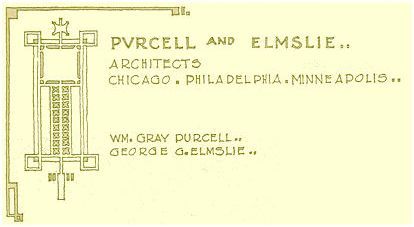 |
firm active: 1907-1921 minneapolis, minnesota :: chicago, illinois |
William Gray Purcell
Pre-P&E Designs and Projects, 1899-1906
William Gray Purcell attended the School of Architecture at Cornell University from 1899 to 1903. During that time he entered a number of competition, winning First Prize in the prestigious competition sponsored by Andrew D. White, then Ambassador to Germany. Several other of his designs during the Cornell period were also published. Following his short six month stint under George Elmslie in Sullivan's Auditorium Tower office in 1903, Purcell departed for the West Coast. Unable to find work in Los Angeles, he took the advice of Myron Hunt and went to San Francisco where he became Clerk of the Works for the construction of John Galen Howard's California Hall at the University of California at Berkeley. In 1905 he moved to Seattle for about a year, working in the office of A. Warren Gould before departing at his father's suggestion on a trip to Europe.
An excerpt from the Guide to the William Gray Purcell Papers describes the scope and content of these documents.
| X1 | Design for Oak Park State Bank 1901 |
| X2 | Design for a City House 1901 |
| X3 |
 Farm Village for William E. Benson, project Kowaliga, Alabama 1901 |
| X4 |
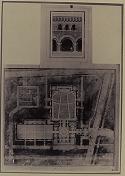 Design for Andrew D. White Competition 1902 |
| X5 |
Memorial Stone for William Cunningham Gray 1902 |
| X6 | Lockplate and
Knob for National Savings and Trust Building 1903 Louis H. Sullivan, architect William Gray Purcell, delineator |
| X7 | Design for a Public Library 1903 |
| X8 | Design for a Bank and Office Building 1903 |
| X9 | Thaddeus P.
Giddings residence, project Location unknown (Oak Park, Illinois?) 1903 |
| X10 |
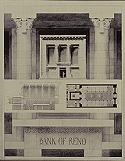 Design for a City Bank also known as Bank of Reno 1905 |
| X11 |
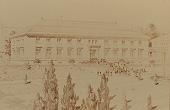 California Hall University of California Berkeley, California 1905 John Galen Howard, architect William Gray Purcell, Clerk of the Works |
| X12 | House design for Oliver W. Esmond 1905 |
| X13 |
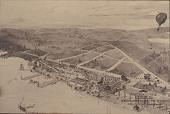 Amusement Park A. Warren Gould, architect William Gray Purcell, delineator 1906 |
![]() research courtesy mark hammons
research courtesy mark hammons